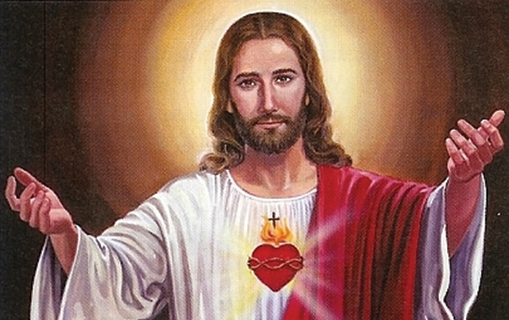
ACCORDING to Vladimir Lenin, religion is the opium of the people. Religion solves those problems that men of science and logic fail to.
The concept of God or a supreme being varies in definition the world over in application and definition. In Africa the major religions are to be Christianity, Islam and African traditional religion.
It seems religion has been on this planet since time immemorial and yet it has never been possible at any point in recorded history to unite everyone under the banner of one .
It seems that newer and newer religions are cropping up each day and within these religions newer and newer denominations seem to be endlessly erupting with finer adjustments from their mother religions.
It seems universal to all religions that there is life after death. However, the paths and methods to achieve that afterlife has been a subject of great controversy and debate. Different prophets offer different ideologies and methodologies which has resulted in emotions brewing and erupting.
In general people choose religions according to the following criteria: Inherited parental beliefs and convictions from power demonstrations by the prophets .It remains to be established whether religion has done absolute good and justice to the development of Africa in this modern day and age. Before an attempt is made a brief history of each of the common religions is essential.
The African traditional religion has been on the continent since the earliest recorded pieces of oral history. The religion has a supreme being referred to by different titles depending with the tribe.
There is a firm belief that once one dies their spirit hovers around their original family and acts a connecting link between the supreme being and the people left on earth. Certain individuals called spirit mediums have special powers to receive messages from the spirit world and they convey these messages to the general ordinary people.
- Chamisa under fire over US$120K donation
- Mavhunga puts DeMbare into Chibuku quarterfinals
- Pension funds bet on Cabora Bassa oilfields
- Councils defy govt fire tender directive
Keep Reading
This religion seems to be dying a slow death.
Christianity was introduced by the European missionaries upon their arrival and is traceable via Rome to Jesus Christ of Nazareth. Christianity to a great extent if not completely, discredited the original African traditional religion on the basis that it was a dirty religion.
Various extreme and inhumane aspects of the religion such as killing of twins and albinos were castigated by Christianity.
Christianity portrays Jesus as a human equivalent to God whose life on earth was a sacrifice that God did to himself so that the sins of heathens such as the Africans would be forgiven forever.
After living a sinless and virtuous life Jesus Christ was murdered at a young age by the Jews as God had planned and resurrected after three days to fulfil the prophecy. He then ascended to heaven in human form to prove his superiority to the people.
The teachings of Islam assert that Mohammed was prophet of the lineage of the illegitimate son of Abraham born to Haggai named Ishmael. Their teachings tend to be more radicalistic and more militant compared to those of the Jews and Christians.
It seems the teachings of the torah of Judaism are a template from which the two religions above are built. Great personalities such as Joseph and Abraham and several others are common in the two religions. The major difference between the two religions mentioned above is that Islam does recognise Jesus, but not as a Christ but rather as a mere prophet, to who Mohammed was superior.
In Africa it seems, the Arabic speaking countries to the north tend to be largely Islam. The eastern and western countries like Nigeria and Central African Republic (CAR) tend to be hybrid of the two religions mentioned above.
The countries to the south have a mixture of African traditional religion and largely Christianity. The influence of Islam is still minimal. These include Zimbabwe, Zambia and South Africa.
It is not the actual teachings of each religion that would worry the observer but rather the violent clashes and wars which erupt amongst the religions. Anyone would believe in their normal senses that these religions should be meeting clubs of spiritually pure people with superior morality, with greater tolerance and understanding than non believers.
The situations in Nigeria, Somalia and CAR and their histories would ridicule such a belief. Daily, suicide bombers massacre numbers of innocent lives at bus termini, shopping malls and stadia. Hit Islamic terrorist clubs such as al-Shaabab move around the country side slaughtering and maiming “enemies of Islam” regardless of age and gender in cold blood.
These are lives that constitute invaluable labour force and the future of the countries involved . Thousands of otherwise productive hours are being put to waste as men of God show each other who the boss is, in violent clashes. Can the following questions be answered then?
Could resources being wasted to mobilise and remunerate these gangs of terror be harnessed for alternative economic development?
Are the governments being too lenient on these insurgents?
What is the situation going to be if Islam was to sufficiently spread its tentacles further to the south and all other parts of Africa, as is underway?
Are the Moslems going to win the war and annihilate the Christians before Jesus comes?
In spite of Africans having won the war against western imperialism, should they brace for a new one against themselves?
With the current trends we need some twenty five years for outright chaos in Africa to break out.
As progressive Africans, what then should we do to avoid the forthcoming? Or rather, it is one insoluble case.
Rivron Samanga is a Nust final year actuarial science student and success coach. Contacts [email protected], 0774 654 642










